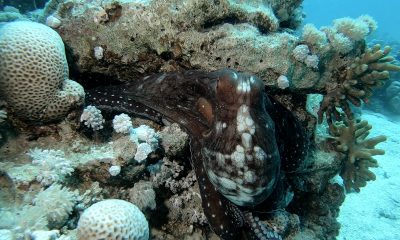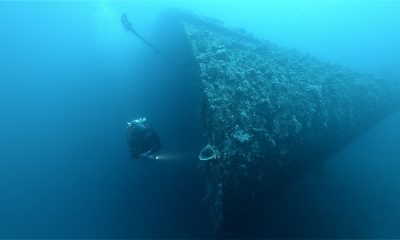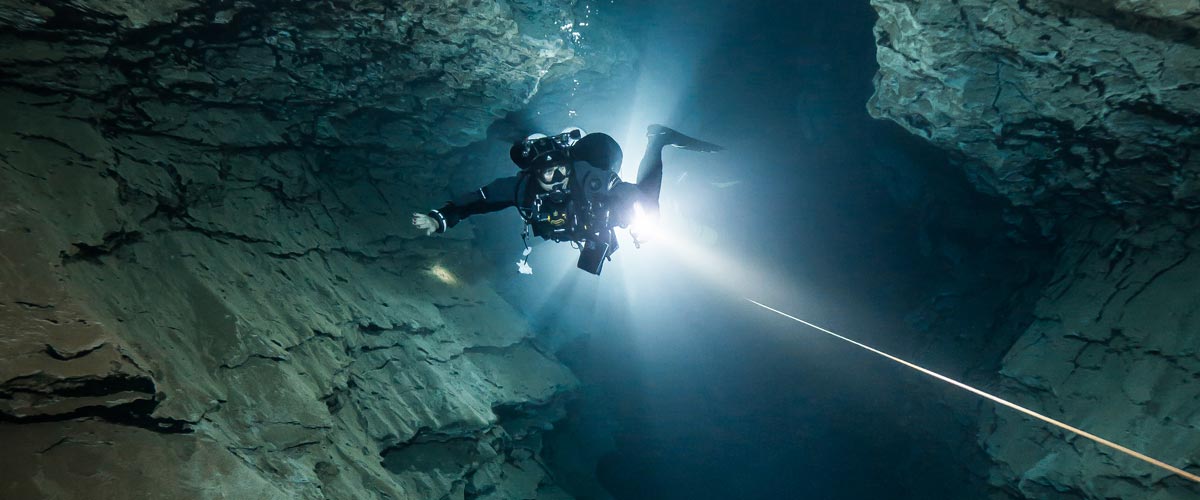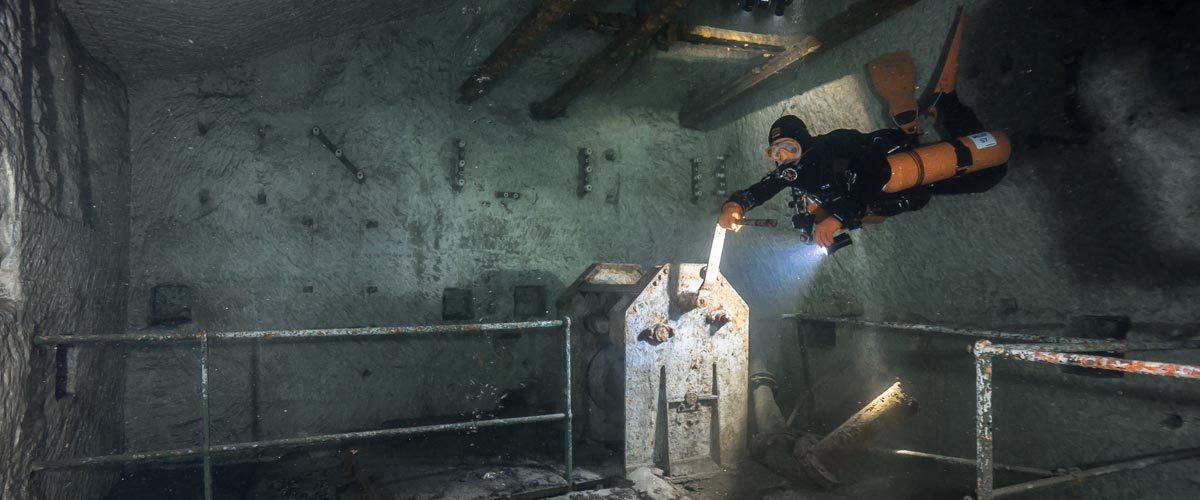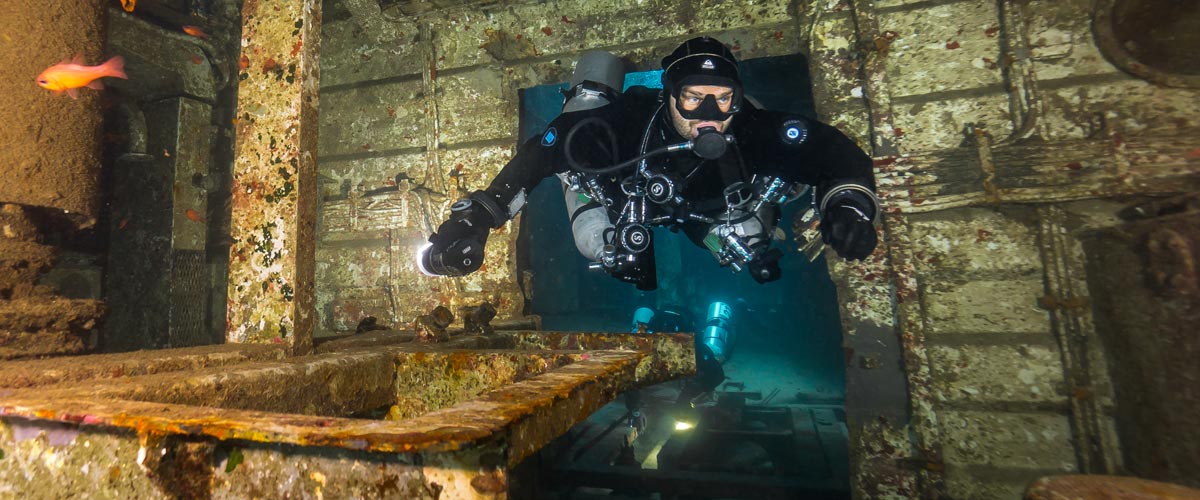Dive Training Blogs
Top 4 PADI specialties to help other divers
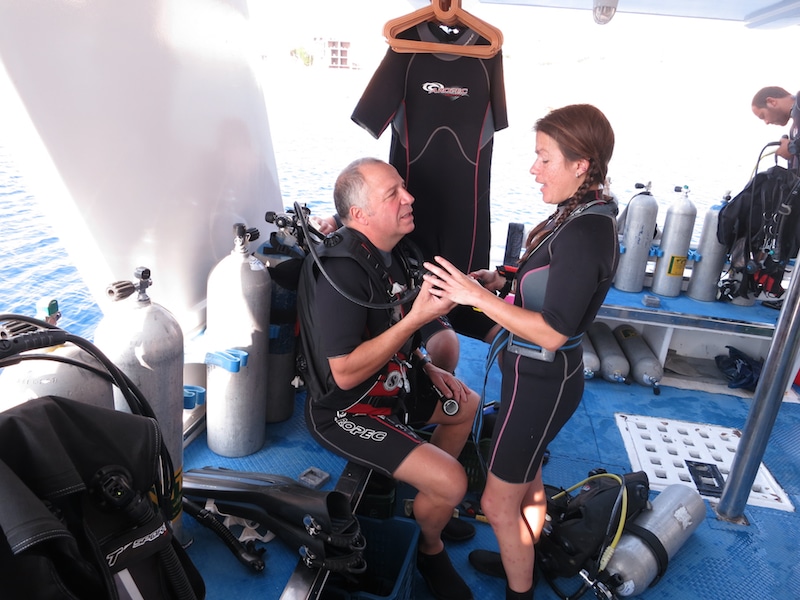
There are many PADI dive specialties to choose from to continue diver education; from the unique Mola Mola, Mine and Hot Spring Diver courses to the popular Deep, Peak Performance Buoyancy and Underwater Navigator courses. Not all dive specialties are focussed on marine life or exotic locations though and some of the most rewarding diver moments come from helping others. There is nothing quite like the satisfaction of knowing how to help a distressed diver or make someone else’s dive easier and more fun. With that in mind, here are our Top 4 PADI specialties to help other divers.
Rescue Diver
Ask any diver what their favourite diving course is, and they’ll often mention the PADI Rescue Diver course. It is known to be challenging and yet extremely rewarding. This important course allows divers to learn how to prevent accidents from happening, plus how to assist themselves and others in the event of an accident. Participants practice rescuing panicked and unresponsive divers, both at the surface and underwater, learn emergency management techniques, and what to do if a diver goes missing.
This course helps divers understand the psychology of diver panic and know what to do when faced with their own or someone else’s stress response. It helps divers gain confidence in their own dive skills and even makes remote and challenging dives, such as those experienced during Polynesia liveaboard diving, more accessible. Polynesian authorities have strict regulations for diving in strong currents and divers are not allowed to go below 30 meters unless they are a Rescue Diver; even if they have a deep diver specialty.
Participants need to be at least 12 years old and have completed the Underwater Navigation Adventure Dive to enrol in this course.
Adaptive Techniques Specialty
The PADI Adaptive Techniques Specialty was launched in 2017 and is designed for PADI Professionals who want to learn how to adapt their dive training to meet the needs of divers with physical and mental challenges. This course is designed for PADI Divemasters, or Master Freedivers and higher, and explores becoming more aware of individuals’ needs and learning adaptive techniques. It is a great course to help PADI Professionals support students with differing abilities, so they can get the most out of their diving and achieve their own personal diving goals.
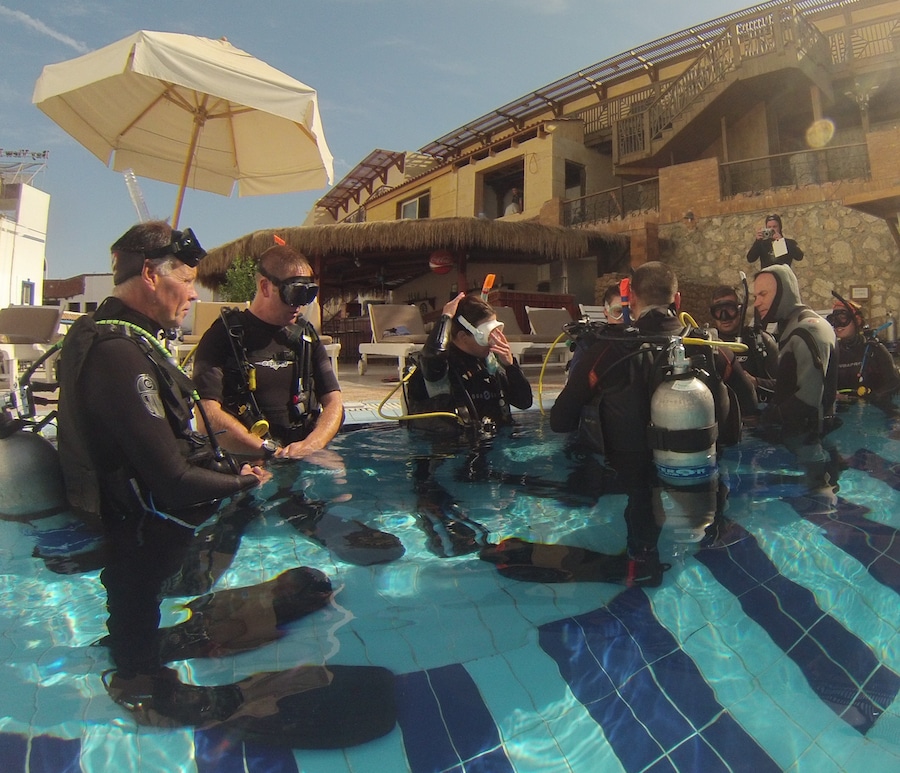
The knowledge development sessions include learning about equipment and logistical considerations, plus assessing dive centre accessibility from others’ perspectives. Practical sessions focus on entry and exit techniques, how to assist others and how to adapt skills based on student requirements. Open water workshops complete the course and explore how to adapt skills in open water, plus pace and organise dives for students’ individual needs.
Adaptive Support Diver
The Adaptive Support Diver course is a subset of the Adaptive Techniques Specialty and also explores becoming more aware of individual considerations and adaptive techniques. It is a great course to help divers discover how to help dive buddies with mental or physical challenges. Divers learn about considerations when diving with a buddy who has different abilities to their own and practice adaptive diving techniques, suitable for both diving and freediving.
This short course is suitable for PADI Open Water Divers, or PADI Freedivers, who are at least 15 years old and have completed the EFR Primary and Secondary Care course within the last 24 months.
Public Safety Diver
Learning to be a public safety diver takes helping others to a whole new level. Public safety dives are conducted by local authorities, fire services, the police, and of course search and rescue dive teams. These divers respond to emergencies at any time of day and are required to dive in challenging conditions, such as within zero visibility ‘black water’ and within polluted waters. Becoming a professional public safety diver requires specialised training in hazard awareness, risk assessments, evidence collection, search procedures, and using specialised dive gear. It is vital work for criminal investigations and rescue operations.
PADI offers a Public Safety Diver specialty course to introduce divers to the world of public safety diving. Participants learn about the equipment and procedures used by public safety divers, plus documentation and communication methods used during their operations. Divers get to practice skills such as navigation, knot tying, victim recovery, and rescue techniques.
Participants need to be certified as a PADI Advanced Open Water diver and at least 18 years old to enrol in this course. They also need to complete their PADI Rescue Diver by the end of the course.
 Discover liveaboard diving holiday solutions around the world at Liveaboard.com.
Discover liveaboard diving holiday solutions around the world at Liveaboard.com.
Blogs
Intro to Tech: What is it about?
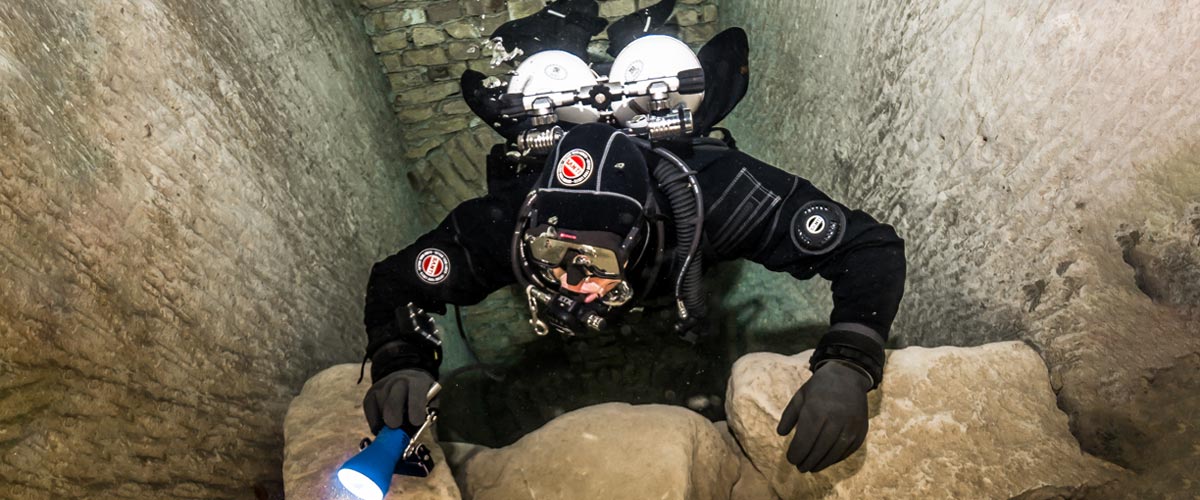
Article by José Pablo Mir
Pictures by Cezary Abramowski
The world of technical diving is exciting. It opens the door to new sites, depths, and bottom times. More importantly, it opens our minds to a new way of planning, facing, and experiencing dives, even those not purely technical.
Becoming a technical diver is a process, and like in other aspects of life, we should find the proper entry point that suits us best based on our knowledge and experience. The Introduction to Technical Diving course from TDI -the world’s largest and most recognized technical diving teaching organization- is the best option for divers who have yet to gain experience in the fundamental aspects of this new practice. The course’s content and its embrace of new techniques and technologies make it possible to acquire a solid foundation to learn and gain experience in this practice properly.
Becoming a technical diver is not something that happens overnight, whether deciding to become one or receiving a certification card stating we are now technical divers. It is a slow process extending farther away than any introductory course. It requires effort and dedication. But it will bring us satisfaction from day one -or two.
It is a matter of mentality
First, we must understand and accept that technical diving, involving greater depths, longer bottom times, exotic gases, virtual or real ceilings, and more, comes with higher levels of risk than the sport diving we have been practicing until now.
Although this discussion usually starts with a warning about risks, as I’ve done in the previous sentence, our practice is not a game of chance.
Technical diving is a rational activity that requires maturity and good judgment, and we will put everything into ensuring that each dive is a successful one -meaning we return from it safe and sound. With this understanding, we will strive to establish a mental attitude more aligned with our practice and its realities.
This new “technical diver” mindset we will develop will lead us to be more cautious in our executions, more analytical in our plans, more rational in our strategies, and more detailed in our procedures.
Experience will keep teaching us to know ourselves better, to keep our anxiety and other emotions under control, and to manage our impulses. Over time, our senses will sharpen, and we will be more attentive to the particulars of the situation we find ourselves in.
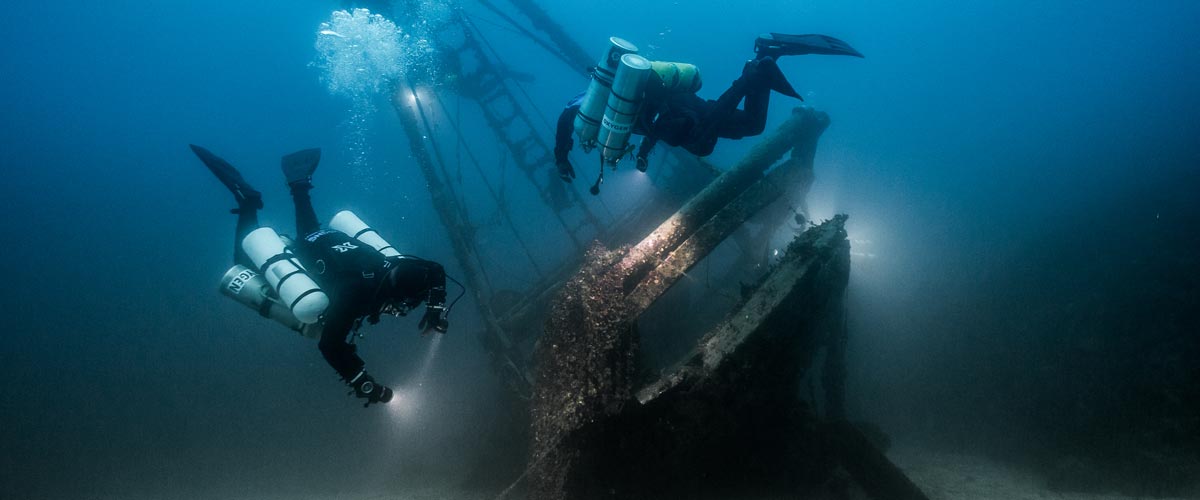
Strategies and procedures
Our strategies, those broad guiding lines tracing the path to follow, from how to approach planning to where, with what, and how we are willing to get there, will be more specific and more practical. Not because they magically become so, but because we will consciously and deliberately frame them that way.
We will establish clear, concise, and realistic procedures. Not only for the undesirable situations that may present themselves but also for those that are part of our dive objectives.
Even though, as technical divers, we often use equipment different from what we were previously accustomed to, it is essential to note that the gear does not make the diver. In a way, we could consider such equipment as the necessary tools to implement what our goal seeks to achieve, according to our strategies and procedures.
Technique plays an important role
We must put our greatest effort into learning and perfecting the different techniques we will be acquiring. Buoyancy, trim, propulsion, cylinder handling, deploying DSMBs and lift bags, valve drills, and more are essential skills we must begin to master to progress in our art. What we cannot do, when we need to do it, can harm us.
Our techniques must be effective and achieve the purpose for which they were devised. But they must also be efficient and require the least resources possible, including the time they take and the effort they demand. Effectiveness and efficiency will prevail over beauty and other considerations that may come to mind, although none of them should be mutually exclusive. A technique executed efficiently and effectively tends to have an inherent beauty.
Refining techniques is a lifelong mission. Some of them will be easy to master from the go; others, on the other hand, will be our life mission and will require many repetitions just to resemble the idea we have in mind of how they should be executed.
We must consider the environment
Our learning, the needs and musts of the practice we engage in, the experience we gradually gain, our strategies and procedures, and even our equipment and tools change with the environment.
Diving in the ocean, everything about us must be suitable for ocean dives. Conditions there rarely emulate those found in a pool, lake, or river. Variable winds and currents, greater depths, visibility conditions, other divers with uncertain skills around us, marine life, maritime traffic, distance from the coast, and many other factors add complexity and uncertainty.
It is never necessary to master the pool on the first day, but planning and aspiring to gradually cope with the ocean’s conditions is essential.
The cost of good training
We are aware that our resources are often scarce in relation to the possibilities of use we could give them if they were not. To a greater or lesser extent, we are part of the economic reality in which we are embedded.
Fortunately, the cost of good technical diver training is not an entry barrier. Comparing training and equipment costs, we see that the former are generally lower. Yes, lower cost for personalized service, essential to our future
performance and safety, than for a series of mass-produced products that are mere, albeit necessary, tools for an end.
The value of good training
The value of the training we received encompasses a range of characteristics, from emotional and methodological to technical and technological. TDI and its Introduction to Technical Diving course offer a deep and modern approach, with a teaching strategy that aims to create thinking divers, not merely obedient ones.
As technical divers, our knowledge is our primary tool. In this type of activity, what we don’t know can harm us.
Is this course optional?
Unfortunately, the fact that this Introduction to Technical Diving course is not a prerequisite for any subsequent training is an invitation to consider it optional. And we all know what usually happens to “optional” under budget constraints.
However, this course should be seen as optional only by those divers who are somehow familiar with the use of technical equipment, who have a mindset more in line with the requirements of this type of diving, who plan and execute the dives the proper “technical” way, who know their gas consumption rate, who are not intimidated by non-decompression tables, who feel comfortable using their dive computers, and know the techniques and have at least an acceptable level of buoyancy, positioning, and propulsion. Those can go straight to a more advanced training course, such as TDI’s Advanced Nitrox.
We must ask ourselves whether or not we are in that group.
Remember our goal: to have fun
Recreational diving is our passion. Jumping into the water carrying heavy equipment and having properly dotted our I’s and crossed our T’s have only one ultimate goal: fun. This is the activity we have chosen as a hobby. We must enjoy it; it must give us pleasure and make us vibrate.
Having a good time is not optional!
Blogs
Four opportunities to go pro in 2024 with Dive Friends Bonaire
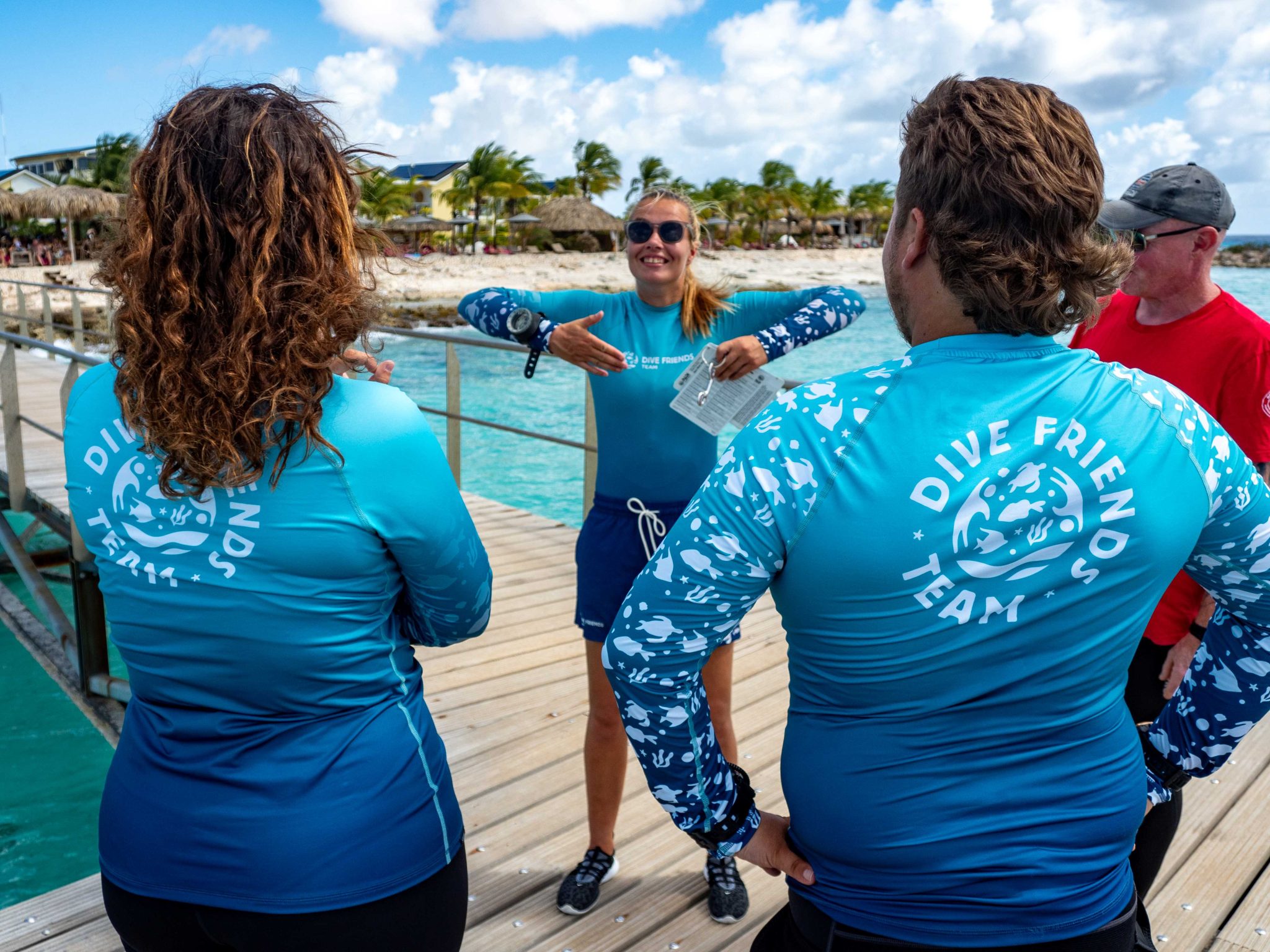
Dive Friends teaches the Instructor Development Course (IDC) several times a year to students who are eager to share their passion for diving with the world.
Dive Friends is known for the personal approach throughout the course. Their in-house course director will lead the students through every essential step, mentoring them to achieve their fullest potential as a dive instructor.
Applications for the following IDC start dates are now open:
- 12 April
- 5 July,
- 20 September
- 29 November
Partnership with Casita Palma
If the student opts for the IDC-Deluxe or IDC-Supreme package, their accommodation will be arranged for them at Casita Palma. This small and quiet resort is within walking distance from Dive Friends Bonaire’s main dive shop location and has everything you need to relax after an intense day of IDC training. Breakfast is included, so the student will always be fuelled and ready for their day.
Contact Dive Friends Bonaire’s Course Director Eddy for more information: coursedirector@divefriendsbonaire.com.
-

 News3 months ago
News3 months agoHone your underwater photography skills with Alphamarine Photography at Red Sea Diving Safari in March
-

 News2 months ago
News2 months agoCapturing Critters in Lembeh Underwater Photography Workshop 2024: Event Roundup
-

 Marine Life & Conservation Blogs2 months ago
Marine Life & Conservation Blogs2 months agoCreature Feature: Swell Sharks
-

 Blogs2 months ago
Blogs2 months agoMurex Resorts: Passport to Paradise!
-

 Blogs2 months ago
Blogs2 months agoDiver Discovering Whale Skeletons Beneath Ice Judged World’s Best Underwater Photograph
-

 Gear News3 months ago
Gear News3 months agoBare X-Mission Drysuit: Ideal for Both Technical and Recreational Divers
-

 Gear Reviews2 months ago
Gear Reviews2 months agoGear Review: Oceanic+ Dive Housing for iPhone
-

 Marine Life & Conservation2 months ago
Marine Life & Conservation2 months agoSave the Manatee Club launches brand new webcams at Silver Springs State Park, Florida











